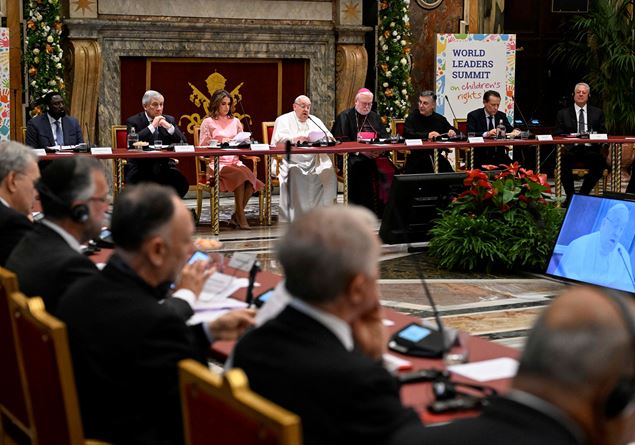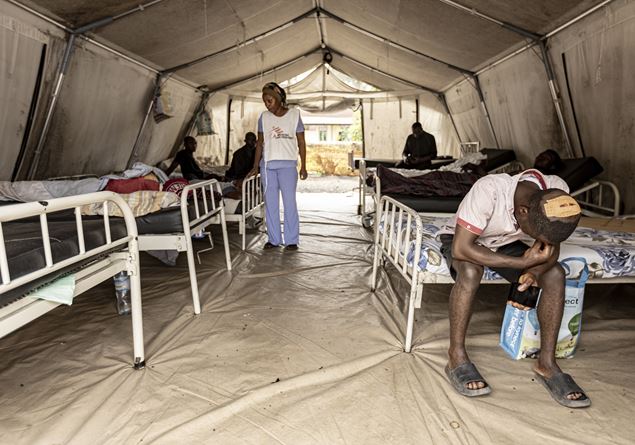
Doctors and nurses are striking, membership is massive, 85% percent. The protest reflects the difficulties of a healthcare system which can be found both in people’s perceptions and in the statistical evidence from Istat: public spending decreases, family spending increases and more and more people give up on treatment because the waiting lists are too long or because they don’t get there with their salary and pension. Meanwhile, a medical class, close to retirement, is struggling to find replacements, who require time to be trained and recruited. We asked Nino Cartabellotta, president of Gimbe, an independent foundation that monitors the healthcare system, to help us understand where Italian healthcare is going.
President, the suffering of the healthcare system is there for all to see. What are the most critical points and what are the urgent measures, from the point of view of those who monitor the Italian NHS?
«The crisis of the National Health Service (NHS) is manifesting itself on multiple fronts: the progressive public defunding has brought healthcare spending below the European average with a per capita gap of almost 940 euros, equal to over 55.3 billion euro. Added to this are the chronic shortage of healthcare personnel, aggravated by retirements and the lack of attractiveness of the public sector and the profound territorial inequalities, which especially penalize the Southern Regions. This is why the health of the NHS is now close to the point of no return: it is no longer a crisis that affects only sector operators, but 60 million people. It is urgent to start a progressive and consistent relaunch of public healthcare financing, to align it with the European average, alongside a season of courageous reforms. Today we continue to provide healthcare according to rules defined over 30 years ago, despite a profound demographic transition and digital transformation having radically changed the context. The relaunch of public funding, to be allocated as a priority to the valorisation of healthcare personnel, must be the cornerstone of a new political and social pact: a commitment that overcomes party ideologies and Government changes, to guarantee a future for our NHS and the protection of health ».
Doctors and healthcare personnel are not only missing, but are fleeing the healthcare system: do you see anything concrete on the horizon to convince them to stay?
«To date, the measures implemented are insufficient. To stop the hemorrhage of healthcare personnel, it is necessary to guarantee competitive salaries and reduce the excessive bureaucratic burden that pushes many professionals away from public healthcare. We must also valorise professionals with well-defined career paths and guarantee continuous training opportunities that encourage professional growth. Finally, we need to improve working environments, making them more sustainable and reducing the risk of burnout. Without concrete and decisive interventions in these strategic areas, the NHS risks losing its greatest asset: the human capital that guarantees its functioning.”
The waiting lists are endless: is it just a problem of resources or also of their correct distribution?
«The problem lies upstream, since the legislator simply chases demand by increasing supply: a failing strategy, because the increase in supply then induces a further increase in demand. What is missing are incisive interventions to resolve the structural problems of the NHS that fuel the lengthening of waiting lists. Instead, we prefer to resort to measures such as tax relief from overtime (the more you work, the more I pay you), which risk exhausting the staff already in service, further fueling the flight of professionals from the NHS.”
We are moving towards an aging country, which will increasingly face complex chronic conditions. It is a topic that requires long-term planning. Are there any ideas or are you just living from day to day?
«The topic of aging requires a long-term strategic vision, but requires immediate interventions. It is necessary to strengthen local services, integrate health and social assistance and build support networks for caregivers, irreplaceable pillars in the management of chronic conditions and disabilities.”
Those who already face these problems today perceive a certain abandonment. Is the topic present in the country system or not enough?
«Politics continues to favor short-term interventions, neglecting essential structural reforms, while those working in the field feel increasingly isolated. It is urgent that the country system recognizes public health as a national priority: not a cost, but a strategic investment for collective well-being. It is equally fundamental to involve health workers and citizens in defining policies, to ensure that they are truly effective, sustainable and able to respond to the real needs of the community.”
Is the sustainability of the system at risk?
«Yes, the sustainability of the NHS is already seriously compromised. The progressive defunding of the public sector, the increase in private spending above 40 billion, the renunciation of treatment by 4.5 million people and the profound inequalities are transforming a National Health Service created to protect a constitutional right into 21 Regional Health Systems, based on the rules of the free market. Without a decisive change of direction, the right to health increasingly risks turning into a privilege for the few.”
Even the training of doctors is becoming more and more complex: knowledge increases exponentially. Is there a risk in hyperspecialization of losing sight of the person?
«There is no need to be alarmed, but we need to act with balance, promoting interdisciplinary training for doctors and integrating advanced technologies, such as digital innovations and artificial intelligence. These tools can support healthcare professionals in analyzing and managing data, freeing up precious time to dedicate to the relationship with the patient.”










